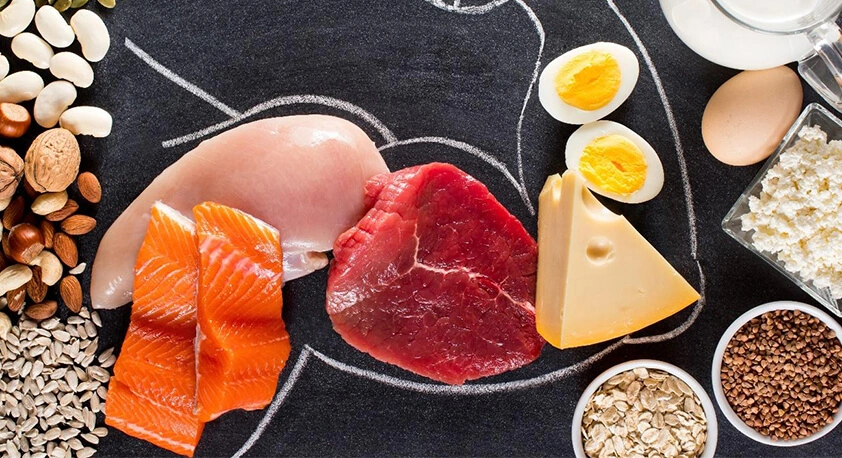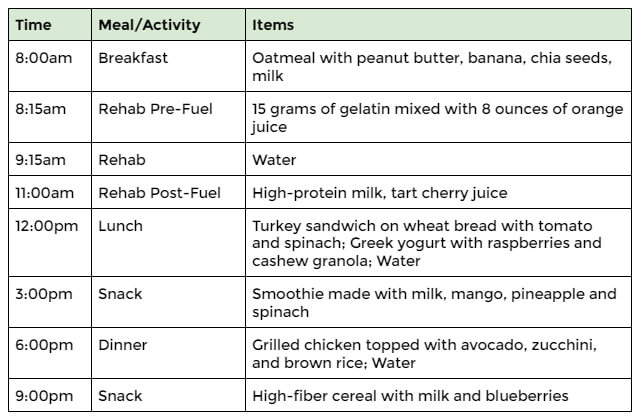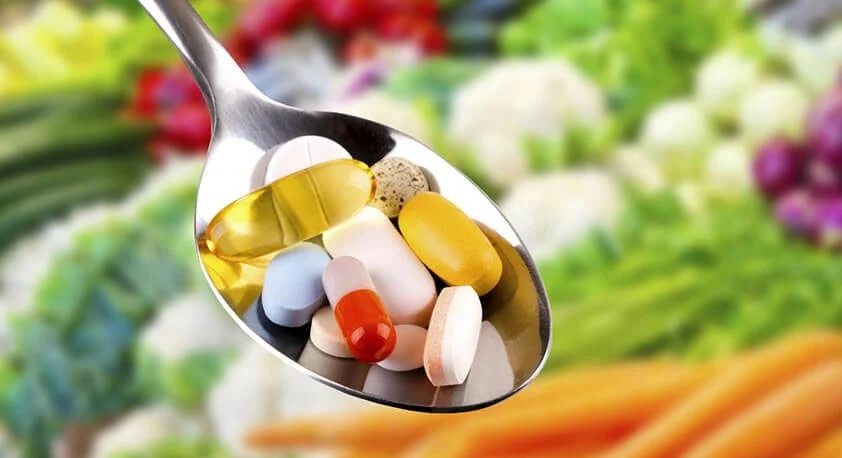Oftentimes, when injuries occur, we automatically apply the R.I.C.E method: Rest, Ice, Compression and Elevation. This, combined with physical therapy, is great for managing injuries in many situations and therefore has been used for years upon years. But what if I told you this method was missing one very important aspect of injury recovery?
Today I want to explain how NUTRITION plays a vital role in the recovery process following injury or illness.
Food is medicine. Whether you are suffering from torn muscles, sprained ligaments, broken bones, or inflammation, the quality and quantity of nutrients you put in your body is crucial for a quick and complete recovery.
According to the article, Nutrition for Injury Recovery and Rehabilitation, it states that an individual who has experienced some sort of injury or trauma to the body requires at least a 20% increase in daily caloric intake. Unfortunately, many people who are laid up with an injury lower their food intake to prevent unnecessary weight gain. Instead, as the article suggests, try increasing your total calories cautiously and carefully with certain nutrient-rich foods.
Depending on your injury, there are certain nutrients you need more of to aid in the healing process.
The article, Injury and Recovery Nutrition, states, “The food we eat gives us the building blocks that we use for all biological processes. Certain ingredients can affect responses like inflammation, promote tissue regeneration, and reduce muscular atrophy, among other things.” Similar to taking medicine after an injury to reduce pain and inflammation, you should also increase certain natural foods and supplements to boost healing.

Okay, so you have an injury, and you now know nutrition is vital to the recovery process, but where do you start? Below is a list of foods you can focus on incorporating into your diet depending on the kind of injury you are dealing with.
Muscle & Soft Tissue Injuries
- Healthy fats and Omega-3 fats serve as anti-inflammatories. Eat avocados, fish oil, flax, and nuts/seeds. Tip: Avoid Omega-6 fats as they may increase inflammation.
- Protein helps prevent atrophy and builds muscles during the retraining after an injury. Eat foods like fish, poultry, tofu, beans, peas, nuts, and seeds. Tip: Do not eat all your protein in one sitting – spread it out over three or four meals.
- Vitamin C helps rebuild tissue and reduce inflammation. Eat citrus fruits, dark leafy greens, bell peppers, tomatoes, and berries.
Bone Fractures
- Increasing your calcium and vitamin D is essential. Consuming Vitamin-K2 (cheese, egg yolk, chicken, and beef) is important as well since it helps draw calcium to the bones to aid in recovery. Eat/drink foods such as milk, cheese, and vegetables (i.e., spinach, kale) as they are good sources of calcium and vitamin D.
- Collagen is a great supplement because it aids in bone regeneration as well as strengthens your hair, skin, and nails.
- Magnesium increases bone strength and firmness. Eat foods like dark chocolate, avocado, nuts, legumes, tofu, and seeds.
- Iron helps with bone repair/rebuild, increasing mineral density and strength. Eat foods like lentils, spinach, hot cereal, and chickpeas.
- Phosphorus is important for everything, as it not only helps in the formation of bones, but also assists the body to use protein for cell and tissue growth. Eat foods like whole wheat, cheese, broccoli, chicken, and nuts.
Related: 6 Super Recovery Food for Athletes
The above foods contain various quantities of the specific nutrients needed to promote proper healing. Without knowledge and/or direction, it can seem overwhelming to make sure you meet the suggested daily requirements. According to the National Academy of Sports Medicine, it states that “Supplementation of vitamins and minerals should be viewed as supplements to an otherwise healthy and/or robust diet”.
For the most part, much of a person’s micronutrient needs (including athletes) can be met through a diet that is rich in fruits, vegetables, grains, and some animal products or animal by-products.” In other words, if you are consuming most of those foods in your diet, you should be good to go. If not, and you are “supplementing” with quick, fast food meals, it would be highly beneficial to focus on nutrition during the post-injury healing process (and forever, really!).
Below is a chart example of foods to incorporate throughout your day if you have experienced a ligament or tendon injury.

If you have more questions and would like to speak with one of our therapists, give us a call or request an appointment online today.

